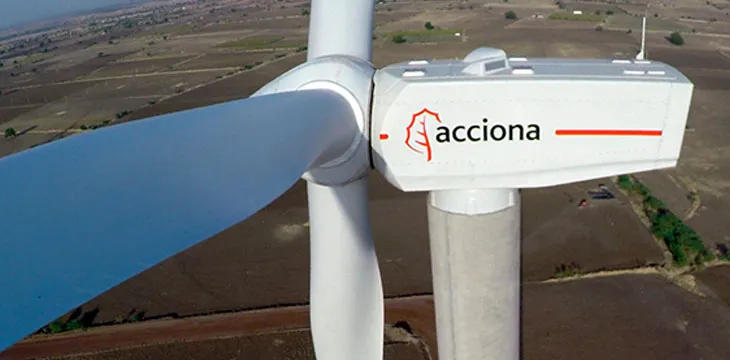|
Getting your Trinity Audio player ready...
|
Renewable energy company Acciona Energía has begun the initial stages of what is called the Greenchain project, where electricity it generates is traceable through blockchain.
The company, which has nearly 400 facilities worldwide, has partnered with software provider FlexiDAO, to assure clients through real-time monitoring systems, that the energy it supplies comes from the sources it claims.
The two companies have been working on the creation of a commercial demonstrator that uses a blockchain platform called Energy Web Blockchain, tracing electricity generation from five facilities running on wind and hydropower, and supplied to four corporate clients in Portugal.
“Acciona Energía has thus become the first entity to trace renewable energy through blockchain in Spain and Portugal,” the company said in its press release.
Already, expansion of the joint project is being explored for its facilities in Mexico and Chile, places that, according to Acciona, do not have consolidated renewable energy certification systems.
Acciona Energía Director of Innovation Belén Linares said, “Tracing the renewable origin of energy is an ever-increasing demand, associated with the growth of the corporate contracting market for green energy, and blockchain technology can facilitate this service considerably to clients in any part of the world.”
FlexiDAO CEO Simone Accornero said of the collaboration, “We are demonstrating that the traceability of renewable energy is now a viable proposition that generates real value for the consumer.”
Acciona has already implemented blockchain-based systems for two renewable plants in Spain, under its earlier Storechain project.
Blockchain has also been used in the Singapore renewable energy industry. The Singapore Power Group’s marketplace for renewable energy certificates, is powered by the technology, and is said to allow for more transparency and efficient transactions.
The Malaysian government has also initiated the adoption of blockchain for renewable energy, to help bring in new players that could compete with Tenaga Nasional Berhad, the lone utility provider in the country.
In Japan, four companies, including Kansai Electric Power Co., have joined research efforts for monitoring electricity distribution through blockchain.

 08-31-2025
08-31-2025 




